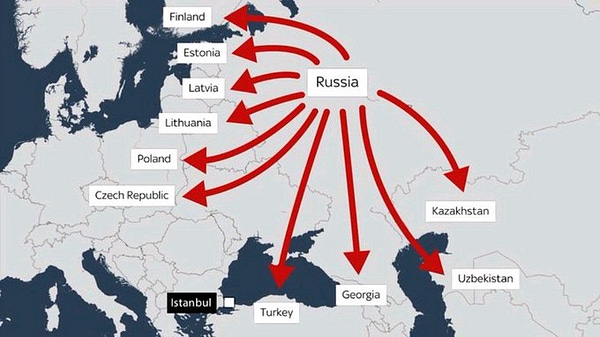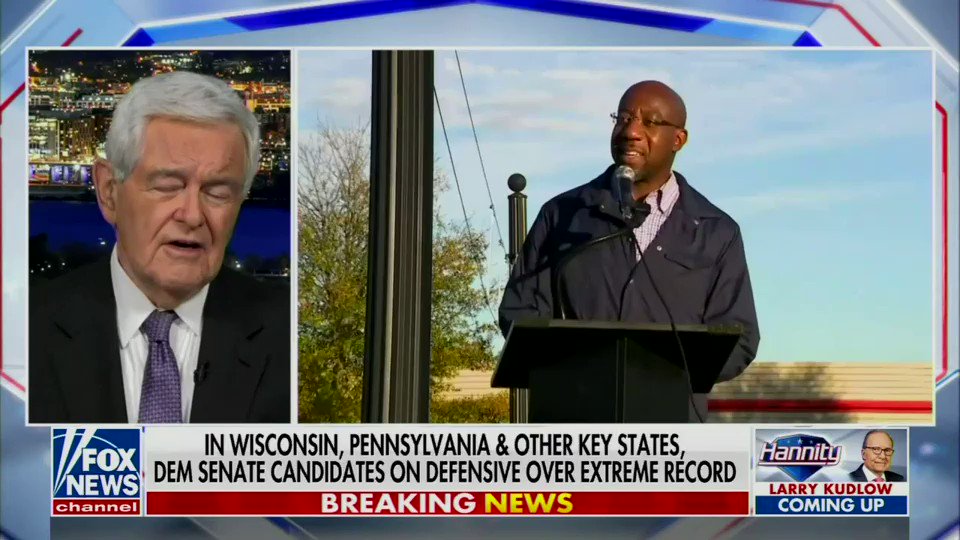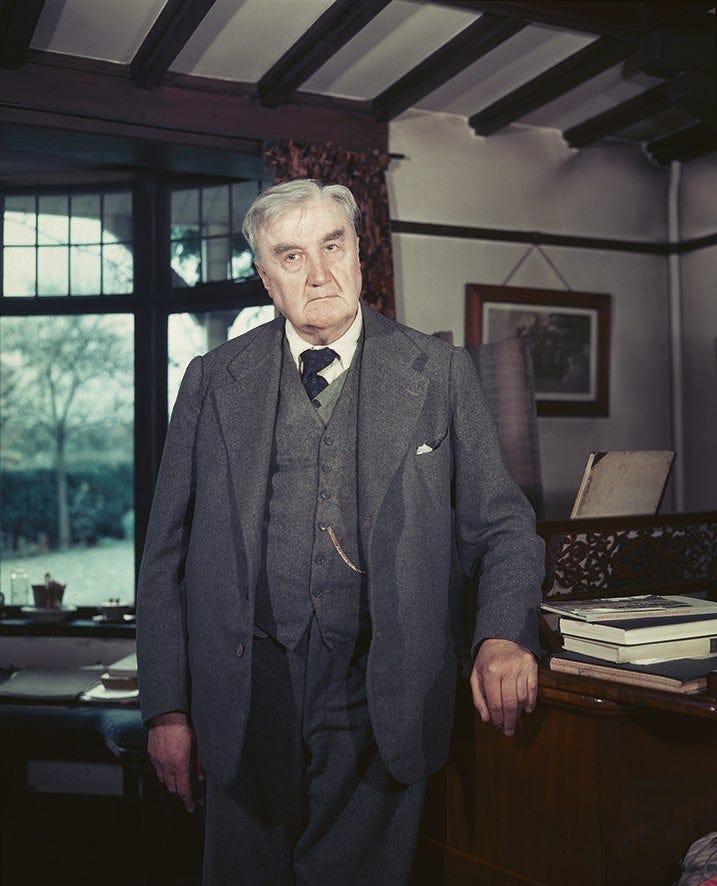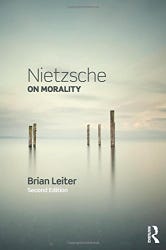Live from the culture war
A word from Newt

What he’s reacting to



Sleepwalking into Armageddon
This is from a philosophy blog that goes back to the dawn of blogging in 2003. It’s a magnet for good comments. The comments thread the author recommends is worth spending some time in.
I would urge readers to at least look at comments #76 and after on the earlier, extremely informative thread about Russia, Ukraine, and nuclear weapons. This is a very grave situation, and I now think it's highly likely Russia will use tactical nuclear weapons. That was one natural takeaway from Putin's speech the other day:
A stunner!
Putin Just Told Us What He’s Planning
And here’s one of the pieces linked to in the comments.
Vladimir Putin’s speech on Friday … was many things: a distorted history lecture, a rather tedious enumeration of supposed Western sins, an airing of grievances and a vaunting of power. For all the rhetorical flourish — accusing Western elites of Satanism, for example — it was in many ways a typical address from Mr. Putin.
But it was also something else: a plan. Amid the bluster and veiled threats, the president made three distinct points that, taken together, form a blueprint for war and peace.


Konstantin Kisin on Russia
I made friends with Konstantin at the wonderful annual festival of economics and comedty that arose from Irish rage at their government having Irish taxpayers bailing our Ireland’s foreign creditors — Kilkenomics. He was a comedian who became an anti-woke warrior. As a Russian translator, he’s also provided his own perspective on Russian thinking through the crisis. Here’s a very recent tweet thread and an interview he did with (of all people) Australia’s John Anderson, former Nats leader.

Timothy Snyder isn’t too worried about nukes: I wish I felt convinced
Insofar as there is some kind of nuclear threat, it is directed not against us, but against the Ukrainians. They have been resisting nuclear blackmail for seven months; and if they can do it, surely we can too. When prominent Russian political figures such as Chechen leader Ramzan Kadyrov talk about nuclear use, they mean in Ukraine. But this is also not how the war is going to end. Kadyrov also claims that he is sending his teenage sons to fight in Ukraine. So that they can be irradiated by Russian nuclear weapons?
Russia claims to be mobilizing hundreds of thousands of new troops. This is not going at all well, but even so: would Putin really take the political risk of a large-scale mobilization, send the Russian boys to Ukraine, and then detonate nuclear weapons nearby? Morale is a serious problem already. It appears that more than half a million Russian men have fled the country rather than be sent to Ukraine. It would not help the situation if Russians thought that they were being mobilized to a zone where nuclear weapons would be detonated. They will get no appropriate protective gear. Many mobilized soldiers lack the appropriate gear for a conventional war.
Russia has just declared that parts of eastern and southern Ukraine are Russia. This is of course ridiculous. But would Moscow really use nuclear weapons on lands that it claims are Russian, killing or irradiating the people it claims are Russian citizens, civilians and soldiers alike? It's not impossible. But it's very unlikely.
There’s rather more moralism than I’m comfortable with here. I’m just interested in the chances of Ukraine going nuclear, and it doesn’t seem to me that it’s “very unlikely”. Unlikely perhaps. But very? Then again what would I know? Anyway, the burden of the piece is to look at the more likely scenario — that a power struggle in Russia is just starting to get going.
Two prominent Russian political figures, Ramzan Kadyrov and Yevgeny Prigozhin, have criticized the Russian high command quite brutally. Given that everyone knows that Putin is doing the actual commanding, this has to be divisive. The Kremlin responded to Kadyrov directly, and army propaganda has been showing a criticized commander with his troops in the field.
By what I take to be no coincidence, both Kadyrov and Prigozhin control something like a private armed force. Kadyrov, the de facto dictator of Russia's Chechnya region, has his own militia. It was deployed to Ukraine, where it seemed to specialize in terrorizing civilians and instagramming itself. After pushing for mobilization in Russia last month, Kadyrov then announced that no one from Chechnya would be mobilized. One might conclude that he is saving his men for something else.
Michael Polanyi coined the term ‘moral inversion’ to describe something similar


Ralph Vaughan Williams by Rowan Williams
Wonderful review of a man and his work — and a class. I was hooked from this opening:
One of the most intriguing features of British social history of the later 19th century is the emergence of a cultivated, liberal upper-middle class whose roots lay in industry and craft as well as in the more traditional world of the “professions”: teaching, medicine, church and law. Often originating in the Midlands and the north of England, and with connections in the networks of dissenting (non-Church of England) religion, they built modest fortunes, sometimes allied themselves by marriage with more conventional establishment dynasties, and provided a seedbed for much of the radical and creative thinking of the late Victorian age and beyond.
Prominent in any catalogue of such families are the Wedgwoods and the Darwins; the Trevelyans, Sidgwicks and Bensons are among other names that come to mind. The narrowness of the English university system in the 19th century meant that gifted young men from these families were likely to meet as students – and, for whatever reason, Cambridge attracted more of them than Oxford. Their families intermarried, and created a huge spider’s web of cousinage across the cultural world of Victorian and Edwardian England.
The families never constituted a European-style intelligentsia, politically restless, pushing against bourgeois tyranny and philistinism; and they stood at a remove from the aristocratic and literary coteries of the age, although a certain amount of overlap developed in the early 20th century. But they were committed to progressive causes, liberal or mildly socialist in politics, intellectually unafraid, religiously agnostic or at least unorthodox, and sometimes idiosyncratic in behaviour (Gwen Raverat’s wonderful childhood memoir, Period Piece, is an unforgettable portrait of the Darwin family in all their majestic oddity). They nurtured some of the most serious scholars of the period, and at least one of the most justly and lastingly celebrated of English musicians – Ralph Vaughan Williams, the subject of a new biography by Eric Saylor, published on the 150th anniversary of his birth.
Seeing RVW – as he was regularly referred to in his lifetime – against this social background helps us understand why he was able to combine being (across several generations) an icon of national stability and cultural identity with a striking detachment from both the competitive anxieties and the rewards of the establishment (he refused a knighthood and only reluctantly accepted the Order of Merit). He approached “Englishness” out of a historical experience that was neither that of simple inherited power and entitlement, nor that of privation and struggle.


Severus Rickman: the diaries
The Snape Rickman diaries.
There’s a widespread tendency to mistake actors for interesting people. In reality, of course, they are often no more interesting than someone with a knack for mimickry. … One exception to the general rule is the late Alan Rickman.
There are also two or three terrific anecdotes involving the glittering cast list of his friends and acquaintances. I loved Rupert Everett’s dry reply to Ruby Wax’s question about how his career is going: ‘Endlessly clawing my way back to the middle.’ Better still is Rickman’s own riposte when John Major approaches him in the stands at the 2011 Wimbledon men’s final. ‘You have given us so much enjoyment,’ gushes the former Tory prime minister. To which Rickman, a lifelong Labour supporter, cannot resist replying, ‘I wish I could say the same of you.’ …
These diaries are dotted not only with dinners, but also with deaths, first of family, then friends. In July 2015, he himself is diagnosed with pancreatic cancer and observes that this is now ‘a different kind of diary’. The entries immediately become shorter and are soon reduced to a sequence of doctor’s appointments.
Rickman died on 14 January 2016, not far short of his seventieth birthday. At his funeral, his friends and his widow, Rima, with whom he had been in a relationship since his teens, sang ‘The Sun Ain’t Gonna Shine Anymore’, the Walker Brothers classic that he and Juliet Stevenson had belted out, sublimely off key, in the best scene of Truly, Madly, Deeply.
Good news
The news couldn’t be better at least judging from this podcast. It seems not only have we reached Peak Woke. We’ve reached Peak Jordan Peterson. Will wonders never cease?
Lifting Up the Rock on the Gutter Right
Lie after lie after lie.
From a Never Trumper conservative:
While politics has never been a gentle pursuit, the advent of Trumpism and the Trumpist ethos has spawned a host of popular voices who embrace lies as a tactic and character assassination as an objective.…
A semi-famous anonymous blogger named “Ace of Spades” also picked up on the story and wrote a vile, expletive-laden screed that’s too obscene to link. And he upped the ante. He claimed that I not only tried to get a Blaze employee fired, I’d also unfairly tried to get a writer at American Greatness named Julie Kelly fired.
This is another flat-out lie, but this is also where things get really gross. Four years ago, Kelly tweeted that my wife, Nancy, “screwed around with her pastor when she was a teen” and condemned a piece that Nancy wrote at the Washington Post. In it, Nancy argued that if Brett Kavanaugh was guilty of the charges against him, he should not serve on the Supreme Court.
Nancy was responding to arguments that Kavanaugh’s conduct wouldn’t have been disqualifying if it was true. I shared her opinion and still share her opinion. I also happen to think that the case against Kavanaugh is way too thin to be believed.
Why is this so gross? Because Nancy didn’t “screw around” with anyone—she was molested by a pedophile pastor. And this happened not when she was a “teen” but when she was 12 years old. It was dreadful abuse.
I called out Kelly’s lies. She refused to apologize. I called out her lies while on an Aspen Institute panel with her boss (you can hear the entire exchange here, starting at the 5:24 mark). He lied to my face and told me that Kelly had apologized. She had not. I did not call for Kelly to be fired. I called out her lies.
A poem from Alice Gribbin’s substack
Since the last post here, I gave birth and have been occupied with loving and getting to know my child. Though this Substack is intended for essays on the arts, recently I’ve been writing only poetry—have had, for a stretch, no inclination towards prose. As a one-off, please indulge me: a new poem, and after it, an older one.
Latch I Do you know the way to the feast? You who have read all the books, read each word in every one, hungry for what cannot be found there. You who have touched every other brick, placed shard and shard in place, hoarded the years, left no stone unclassified, waiting for the earth to be more solid. Is it yet? How overaware you seem, forever naming each thing: subject subject object object, or neither, or both. But what of the feast, meanwhile, and being there? II Two parts and not one of us thinks about the where, and how, and how long for. She needs feeding and so the baby is fed, is fastened, fastens herself to her mother. Having a body takes practice. Instinct does not preclude bewilderment, no. Here bewilderment follows it, close, a breath away only. Complaints, coaxings, her hand or hands interfering, insistent nipple, insistent tiny mouth, our few square inches of chaos, of soft incoherence, are quieted when baby at once latches. More than once, one breast impossible with milk, exorbitantly full, wet from a shower, needy, naked, I’ve rushed to her.


When push comes to shove: The Economist on ESG
The Economist on the contradictions of various (predictable)
More than $35trn of assets worldwide are said to be monitored using some sort of sustainability lens, an 55% increase since 2016. … Bosses of S&P 500 companies now mention ESG (environmental, social and governance) nine times a quarter in earnings calls, on average, compared with just once, if at all, in 2017.
But as the focus shifts from words to deeds, the contradictions in esg are becoming brutally clear. … One illustration of the tensions … is the political firestorm in America around BlackRock, a huge asset manager . Republican Attorneys-General in 19 states accuse it of misusing its market power by boycotting fossil-fuel firms. The company rejects the charge. Meanwhile, watchdogs in New York, a Democratic state, complain that BlackRock is not green enough. The controversy could come at a cost to the business: Texas, a Republican state, plans to ban its pension funds from dealing with the firm.
No wonder that some financial institutions are getting cold feet about green alliances. JPMorgan Chase and Morgan Stanley were among the Wall Street giants threatening to quit a subgroup of the Glasgow Financial Alliance for Net Zero (GFANZ), a coalition co-chaired by Mark Carney, a former governor of the Bank of England. Standards for members were subsequently changed. Two pension funds, Australia’s Cbus Super and Austria’s Bundespensionkasse, have already left.


Did the Americans blow up NordStream?
http://thomaspalley.com/?p=2271
read before putting in
Fruitcake watch ®
OK, there’s already been a fair bit of Fruitcake Watch ® content above but I had to find a place for this:














